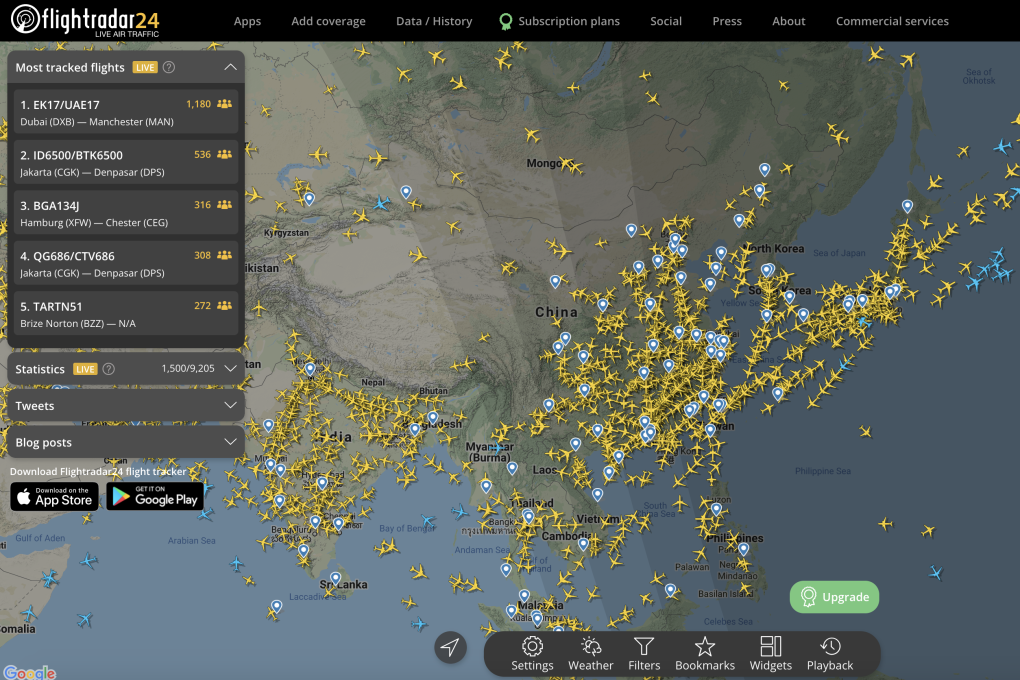China’s crackdown on flight-tracking devices leaves companies and hobbyists frustrated
- Flightradar24 has been removed from app stores in China following a state media report detailing national security concerns over flight-tracking devices
- ADS-B receivers are used by aviation enthusiasts around the world to capture data sent from commercial and military flights

Those Chinese plane-spotters relied on Flightradar24, a website that allows internet users to obtain instant information about travelling jets, including origin and destination, position, altitude, speed and aircraft type. Along with other similar platforms, Flightradar24 has been used for years by aviation enthusiasts, airport workers, travel agents and news reporters around the world to keep tabs on flights.
Now these flight-tracking sites and the equipment they use have become targeted by Chinese national security authorities.
On October 31, state-run China Central Television (CCTV) reported that regulators recently confiscated hundreds of so-called automatic dependent surveillance-broadcast (ADS-B) devices, which are used by Flightradar24 and its peers to capture aviation data. Two days later, Flightradar24 was removed from app stores in China.
According to the report, Chinese national security authorities have discovered that multiple overseas institutions have been trying since last year to recruit hobbyists in China to share aviation and aircraft data with them, an action that is considered an illegal overseas transfer of data under Chinese law.
The report also said that these institutions, which were not named, have been providing free equipment and access to aviation data as a bonus for their recruitment drive.

01:22
Japan’s US$700,000 hoverbike provides new toy for supercar enthusiasts
“From our investigation we found that these devices use encryption when they are transmitting and they cover a large amount of data, the purpose of which is exactly to prevent interception by cybersecurity authorities in different countries. This is very clear,” a spokesman for the Ministry of State Security was quoted as saying.

